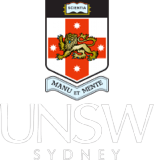This study is now closed. Please refer to our Research Studies page to view our ongoing studies.
Study description/purpose
The aim of this research is to determine whether the use of surgical masks and P2 masks protects people with asthma, emphysema, chronic bronchitis or bronchiectasis from the effects of smoke exposure during bushfire season in Australia.
There is no clinical efficacy data to support the choice and use of facemasks, P2 masks or staying indoors for protection against bushfire smoke. The Australian Medical Research Futures Fund has funded this study as part of an urgent call for research into the health effects of bushfires.
Researchers will compare exposure reduction methods, including surgical masks, P2 mask facemasks, and avoiding outdoor activities.
What’s involved
People who consent to be in the study will be randomly allocated to one of three groups: surgical masks, P2 masks or outdoor air avoidance.
If allocated to a mask, they will need to wear a mask when exposed to bushfire smoke. They will be required to fill in a form at the start and the end of the study. Their health will be tracked during a maximum of 4 weeks around controlled backburning between August and November 2023 and through all of December 2023 and January 2024 this summer.
A final period of follow up will occur from 1 April to 30 April 2024.
Participants will receive air quality alerts as a trigger to wear their mask or avoid outdoor activities and fill in a short diary card each day. Masks will be posted to participants.


